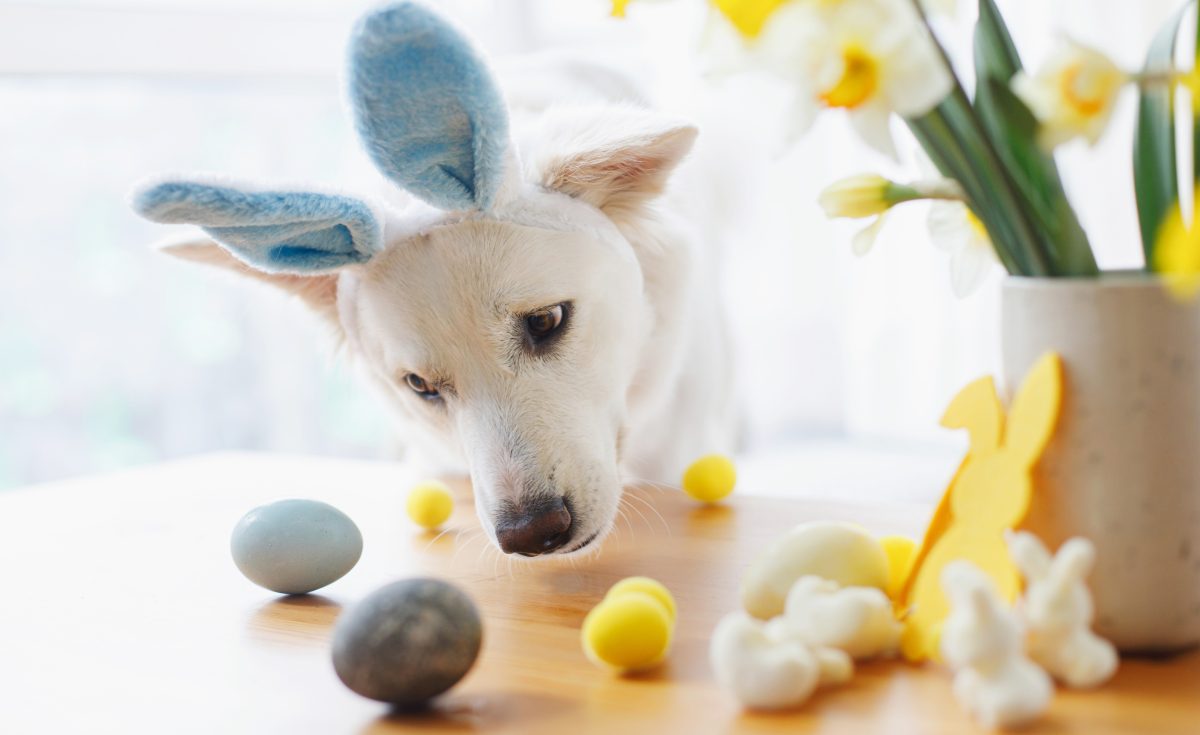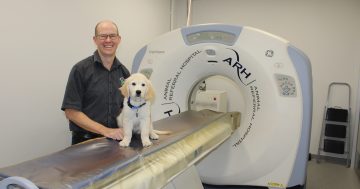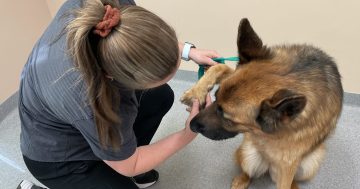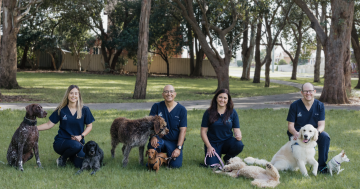
Prevent your pet from needing a trip to the vet this Easter. Photo: Sonyachny.
Easter egg hunts and delicious chocolate gifts are set to be highlights of the upcoming holiday but veterinarians are urging dog owners to be extra vigilant in ensuring their furry friends are excluded from the annual activities for their own protection and wellbeing.
Chocolate is one of the foods most widely known to be toxic for dogs and while most won’t intentionally let their pet have the substance, the Easter period can create an increased risk of accidental consumption.
Greencross Vets Fairy Meadow director Dr Luke Michel warned that a dog ingesting chocolate had the potential to be fatal, depending on the size of the dog, type of chocolate and how much was consumed.
“It depends on the quantity that they have – it’s not like when they touch it they’ll get sick,” Dr Michel said. “They can only handle a certain amount of the compounds and things that are in there, so the two main ones are theobromine and caffeine.
“And each type of chocolate is different with how much is in there, so there’s heaps more in your dark chocolate than there is in milk chocolate.”
He said early intervention could be key, but if a pet was to secretly get into a chocolate stash, you might not realise straight away, so you must always be on alert for signs of illness.
“It starts as usually vomiting and diarrhoea, and that’s how some people will find it – they’ll find the vomit with the chocolate in it or the wrapper, and then it progresses and starts affecting the heart and the nervous system,” Dr Michel said.
“If you can intervene early we can make them vomit and give them some charcoal, because making them vomit isn’t foolproof. It will get a lot of it out but not all of it, but also it depends on how long since they’ve eaten it and what they’ve had a chance to absorb.”
Dr Michel said even if your dog didn’t usually seek out chocolate, being extra careful during activities like Easter egg hunts could help minimise the risk.
“You don’t have to stop doing all those things, you just need to be prepared that the dog can’t be part of it,” he said.
“I’d just encourage people to put the dog somewhere else or set it up somewhere that they don’t have access to … so use your front yard instead of the back or inside and just make sure you’ve got them all – counting is good.”
And he warned that they don’t learn from their mistakes and could in fact seek out the chocolate more if they’d had it before.
“They don’t associate eating the chocolate with having to come here and vomit it back up again; they just think it’s delicious and want to do that again,” Dr Michel said.
“Once they’ve done it they’ll try harder to do it again, so you just have to have it somewhere that they completely don’t have access to, like a top of a cupboard.”
No matter the amount, if you think your dog has ingested chocolate you should call a vet immediately, and know which clinics are open during holiday periods.
Another reason to check in with your vet over the holidays is if you’re planning on taking your pet on a road trip.
Dr Michel said there were medications and natural remedies that could help prevent motion sickness and pets could have anxiety towards car trips which could also make them unwell.
“It can be tough to tell at the time, but if they’re getting themselves worked up and drooling before you’ve even gone anywhere, that’s a sign that there could be an anxiety component to it.”
Managing this anxiety may take time but should ease as they become more familiar with travelling in the vehicle.
“Even starting off by putting them in the car without it actually moving, make it a positive thing; give them treats and just make a process of shorter trips and build it up over time,” Dr Michel said.
And just like us, your pet may need plenty of pit stops, so ensure you factor in places for them to hydrate, stretch their legs and go to the toilet along the route.


















